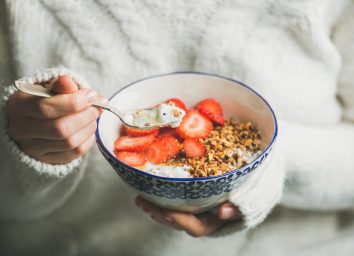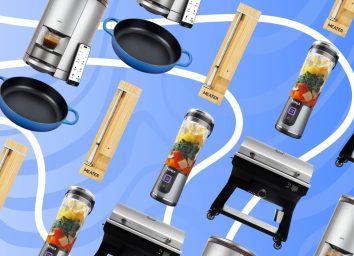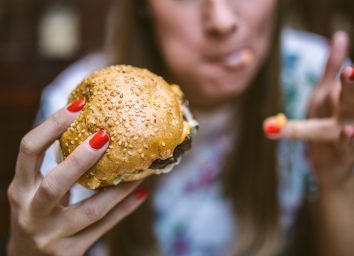10 Best Eating Habits to Help Boost Your Metabolism, Say Dietitians

Genetics plays a major role in your baseline metabolism, but there are also several lifestyle factors that can influence how many calories you burn in a day. Exercise is a major component of calorie burn, and the foods you eat and eating habits you practice can increase this number, too. If you are trying to boost your metabolism, read on to learn more about the eating habits that can improve your calorie burn.
The number of calories you burn in a day ties in directly with your weight. For those wanting to boost their metabolism, the desired increased calorie burn may aid in weight loss and spur progress toward a weight or wellness goal. While eating habits can have a major influence, don't underestimate the impact of exercise. Not only does intentional exercise, like strength and cardio workouts, increase your metabolism, but the movement you do throughout your day can increase calorie burn significantly as well. To increase your calorie burn with activity, try to get up and move every hour during the day, take the stairs instead of an elevator, park near the back of a parking lot to take more steps getting to the store, and take a brief walk after dinner.
More daily movement and purposeful exercise will no doubt improve your metabolism. To make even more of a positive impact on your calorie burn, incorporate these 10 best eating habits to help boost your metabolism.
Eat protein at each meal and snack
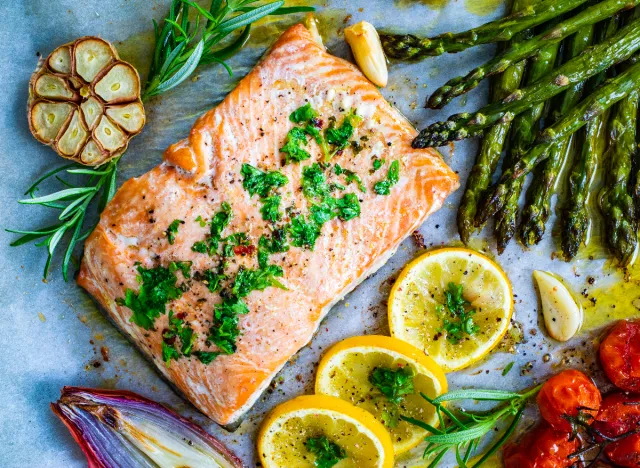
Protein is the nutrient with the highest thermic effect. This means you burn more calories digesting protein than you do carbs and fat. Eating a rich source of protein at each meal and snack can increase the number of calories you burn at rest, giving your metabolism a significant boost. Eggs at breakfast, Greek yogurt for a snack, deli turkey for lunch, edamame in the afternoon, and salmon at dinner are examples of how to incorporate protein throughout your day.
Don't go too long without eating

Skipping meals or snacks can lead to a slower metabolism over time. If you go too long without eating, too frequently, your body may slow its calorie burn to preserve stored energy. To avoid this, try to eat every three hours throughout the day. Depending on your daily schedule and the hours you are awake, this will likely include three meals and one to two snacks. Incorporating a variety of good quality foods throughout your day can 'stoke the furnace' that is your metabolism, encouraging it to operate at a higher level and increase calorie burn.
Avoid eating too late
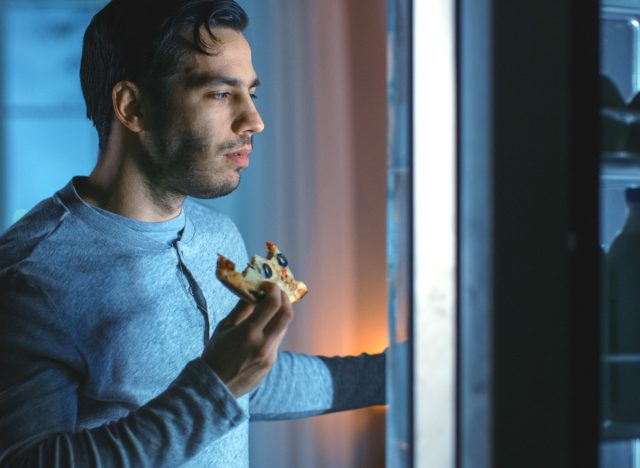
If you are a late-night snacker or enjoy a big bowl of ice cream before bed, you could be doing a disservice to your metabolism. Not only could eating too close to bed be bad for your metabolism and waistline, but it could also cause digestive issues. One of the most common causes of reflux is lying down too soon after a meal, leading to uncomfortable heartburn symptoms. To support your metabolism and reduce the chance of reflux, allow at least two hours between your last food of the night and going to bed.
Eat more spicy foods

Capsaicin is a compound found in peppers that is responsible for the burning sensation you may experience after eating these spicy foods. While many may include chili peppers in their dishes for flavor and spice, doing so may also boost your metabolism. Although the metabolic boost is short-lived after eating spicy foods, it can still have a positive impact on your calorie burn. Incorporate chili peppers into your dishes, or top your favorite meals with hot sauce for a flavorful way to boost your metabolism.
Sip on coffee and green tea
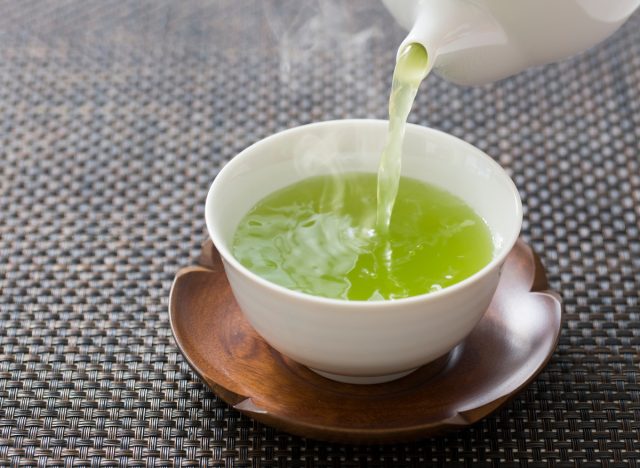
Caffeine, which is naturally found in coffee and green tea, can increase your metabolic rate. This is one reason you may see caffeine in supplements that are designed for fat loss. While these products can contain a dangerous amount of caffeine, the natural amounts in these drinks are safe for most. A cup of black coffee or freshly brewed green tea can boost your hydration, too. Just avoid adding sugar to your drink as it could have a negative impact on your metabolic goals.
Avoid low calorie diets
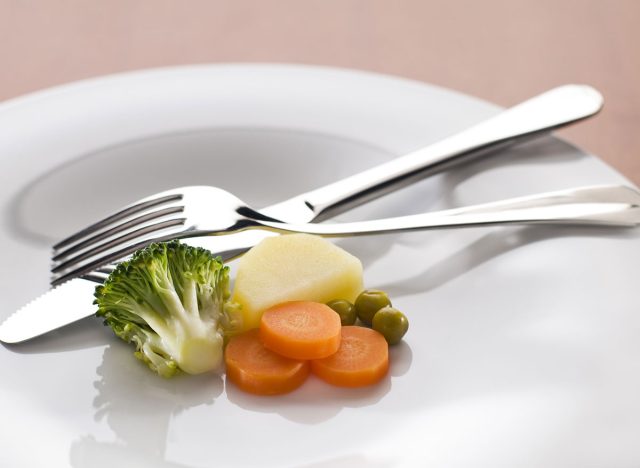
There is no shortage of diets designed for weight loss. While some diets focus on the types of foods you should eat, others put more emphasis on the amount of food you are eating. The diets that encourage a very low-calorie intake may actually slow your metabolism if followed for too long. Eating too few calories relative to what you burn in a day could cause your body to conserve energy, similar to eating too infrequently. Everyone's calorie needs are different, so check with a professional on what an appropriate intake is for your goals and lifestyle.
Eat more fiber
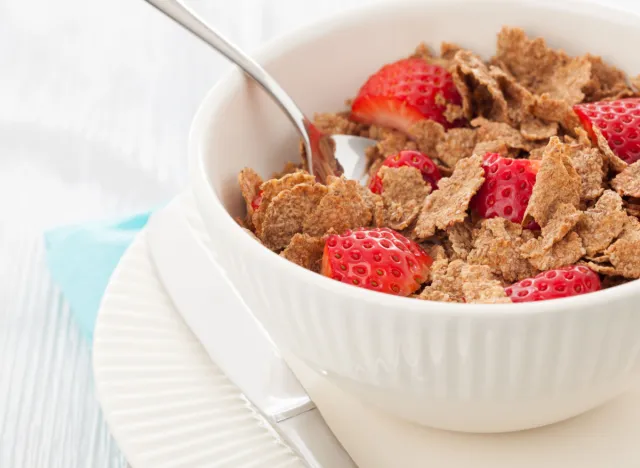
Fiber is a nutrient that is naturally found in plant-based foods. Nuts, seeds, produce, whole grains and legumes are examples of foods with impressive fiber content. This nutrient can aid in digestive regularity and improve satiety. In addition to these positive attributes, fiber can also limit blood sugar spikes, benefiting your metabolism. When eating carb-based foods, like bread, cereal, and crackers, choose options that have several grams of fiber per serving. This will reduce the negative impact sugar can have on your blood sugar, keeping your levels more stable.
Eat more whole foods
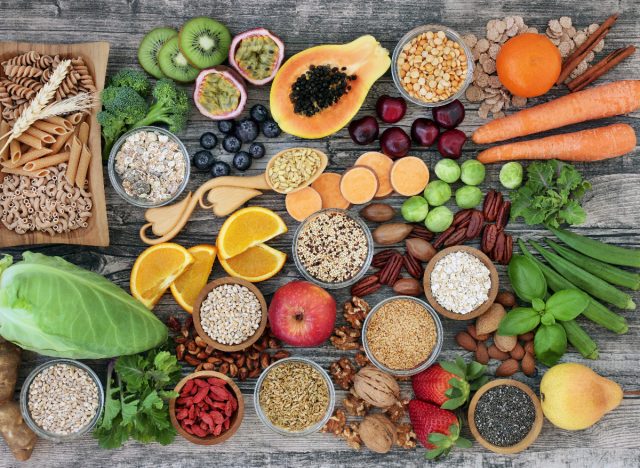
Foods that are minimally processed are more likely to include more essential nutrients than highly processed options. Lean proteins, whole grains, produce, nuts, and seeds are examples of foods that are usually in their 'whole state' and have undergone little to no processing. These foods are less likely to have added sugar and artificial ingredients that could impact your metabolism, and more likely to contain fiber that can have a positive impact on how your body uses the food you eat.
Cut back on alcohol

Alcohol is an empty source of calories and often comes along with added sugar, another source of non-nutritious calories. Drinking too much alcohol too regularly can have a negative impact on your metabolism in a few ways. First, it can impact your sleep quality, which can damage your metabolic rate. Alcohol can also increase the likelihood of dehydration and affect the functioning of essential organs, like the liver, all of which can harm your metabolic rate, and worse. To avoid these outcomes, enjoy alcohol infrequently, avoid drinks that also contain added sugar, and women should have no more than one drink in a day while men can have up to two.
Eat more salads
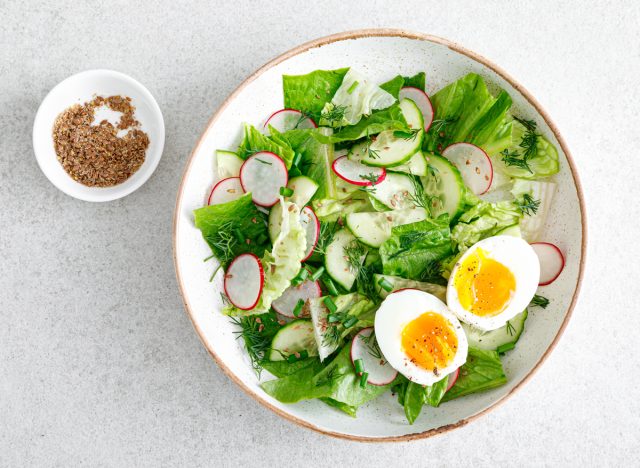
Not only will eating more salads increase your consumption of whole food ingredients, but certain types of lettuce may actually improve your metabolism for a short period after eating. Romaine lettuce, in particular, appears to improve metabolic response after eating. Although you may not enjoy a salad at every meal, several salads per week over a long period of time can have a significant impact on your metabolism and overall wellness. To further support your metabolism, incorporate other veggies into your salad, top with a lean source of protein, and use a salad dressing with a little heat to incorporate capsaicin into your meal.
- Source: Lipids in Health and Disease

